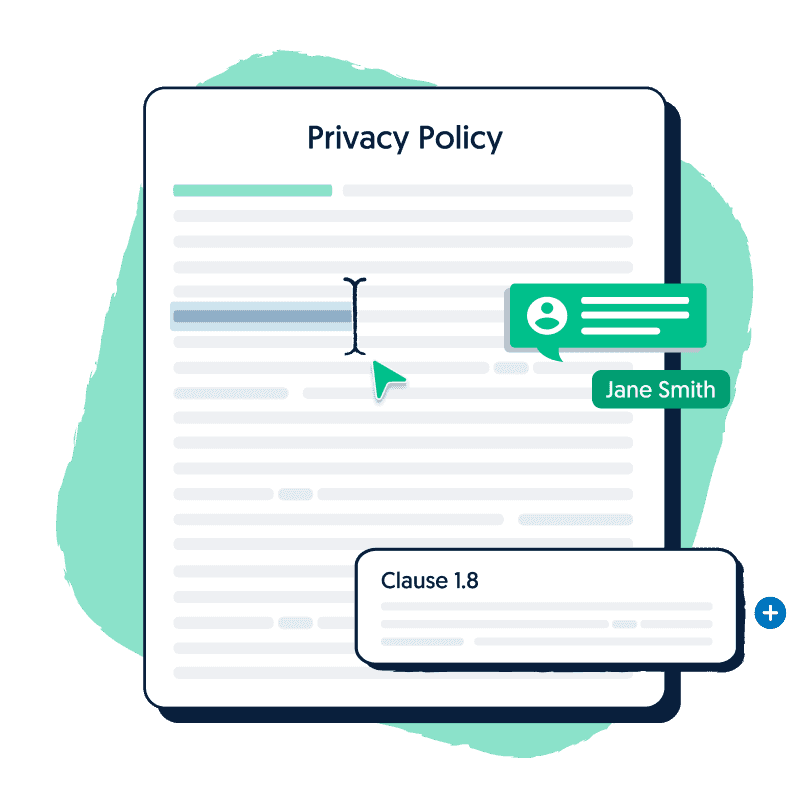Sydney-based financial crime analyst with nearly 3 years of expertise in the financial crime field, specializing in Anti-Money Laundering (AML) and Know Your Customer (KYC) compliance. Formerly Legal Intern at Lawpath.
Table of Contents
Introduction
In this day and age, e-commerce stores, blogs or any platforms that collect and store personal data requires a Privacy Policy. A Privacy Policy is a legal statement that explicitly outlines the exact information that will be collected from visitors along with its usage and storage. Privacy Policy URL, on the other hand, pinpoints the location of this policy on the platform.
Privacy Policy URL
A Privacy Policy URL provides a link to the privacy policy of your business, app or blog. This policy outlines how your platform handles internal and external data collected from visitors. All visitors should be able to access and view your privacy policy without needing to log in or sign up. The privacy policy should explicitly mention your company name and any affiliated mobile apps or businesses.
If you have any questions or need any assistance to review or draft a privacy policy for your website or app, you should seek the advice of a privacy lawyer.

Get a free Privacy Policy when you sign up to Lawpath today.
A Privacy Policy is required by law in certain circumstances. It outlines how your business will use, store and collect your customers information.
Hosting Privacy Policy on Websites
A website’s Privacy Policy is usually hosted on a company’s website or through a third party website. Most people opt to host through their site as this gives you complete control over your privacy policy. You also explicitly address the two essential aspects of hosting a legal agreement online – easy access for your guests and a distinct association with your company. If you prefer the latter, any publicly accessible site such as Google Docs can act as a suitable third-party host. However, it is pivotal that the Privacy Policy clearly outlines the relation to your company and not the third-party host.
Displaying the Privacy Policy URL
Most websites display their policy URLs in their footer as this particular element of the website is visible on all site pages. Visitors accessing this website would generally know to look at the website footer for any important links. However, this doesn’t stop you from displaying your Privacy Policy URL elsewhere. For instance, if you run an online store, you can provide your policy URL during the check out process. This will reassure wary customers that their personal and financial details will not be misused. However, if you are a blogger, you can provide your Privacy Policy URL in the ‘sign up’ box. This will assist in informing your guests as to how their email addresses will be used.
Privacy Policy URL for Apps
You are legally liable for informing visitors if your mobile app collects, uses and stores personal data. Major app stores will reject app submissions if they don’t include a Privacy Policy. You can display the Privacy Policy on the profile page of your app on the app store. A URL link to the policy can also be provided in the setting or account area of the app.
The policy URL must be discernably placed within the platform for easy access irrespective of the platform used. It is highly recommended to add your Privacy Policy URL to areas of the platform where privacy concerns are more obvious, such as the payment page and the sign-up area.

Get a fixed-fee quote from Australia's largest lawyer marketplace.
Conclusion
In today’s digital landscape, a clear Privacy Policy and accessible Privacy Policy URL are vital for transparency and legal compliance. Whether hosted on the company’s website or through a third-party platform, the Privacy Policy URL should prominently link to the policy, providing users with easy access to information on data collection, usage, and storage practices. Prioritizing clear disclosure fosters trust and mitigates legal risks.






